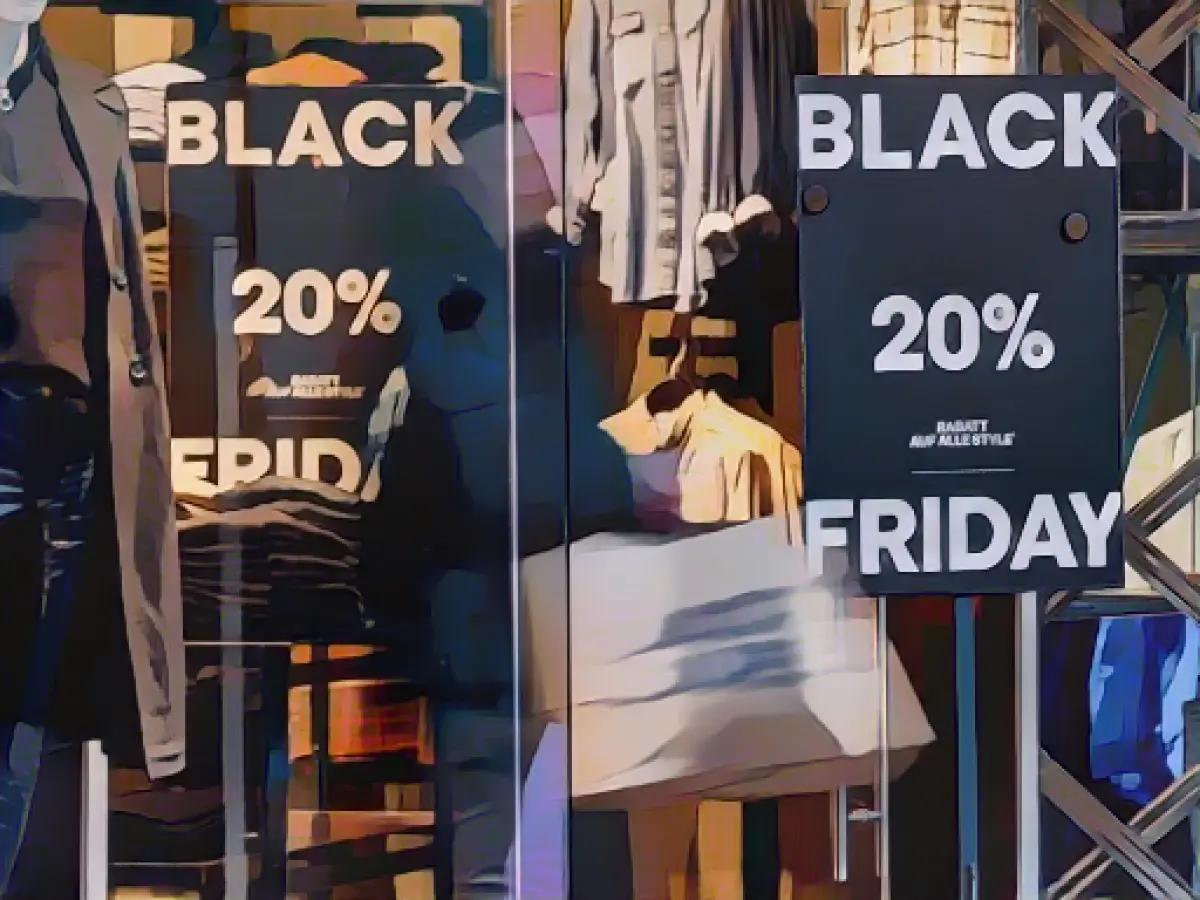Black Friday: Are There Attractive Discounts This Year Despite the Economic Crisis? 🛒
The clock is ticking. Websites like are already counting down the minutes to the big day. Black Friday lands on November 24 this year, kicking off a week of deals known as Black Week.
But the festivities have actually started earlier, as retail giants like Amazon, Otto, Saturn, and more have launched pre-sales, offering discounts on popular items like gaming consoles, computers, washing machines, and coffee machines.
Retailers bank on Black Friday, but this year's outlook isn't as promising. The name itself is a bit on the nose—originally commemorating the collapse of the New York Stock Exchange in 1929. Now, amidst pandemic, wars, and inflation, retailers rely heavily on these high sales following challenging times. Yet, many consumers are holding back on spending. Can the campaign still be successful?
Men Plan to Spend More Than Women 👨💻👩💻
Despite the uncertainty, a representative survey by PwC reveals that a whopping 70% of Germans plan to scout for deals around Black Friday. On average, they aim to spend 281 euros, a drop of eight euros compared to last year. Males, however, are more willing to spend, with an average goal of 331 euros, while females eye a budget of 234 euros. Last year, German consumers surpassed their French, British, Italian, and Spanish counterparts in spending, according to market researchers from NielsenIQ.
Black Friday Originated in the U.S. 🌎
In the U.S., the day after Thanksgiving, which marks the start of the Christmas shopping season, Black Friday originated. The brand saw its German trademark in 2013 and has grown steadily since, now a staple event for retailers along with Christmas. The fourth quarter is the retail sector's best quarter in terms of sales, and Black Friday is their most significant sales event, apart from Christmas.
Pressure this Year, Especially on Retailers 💼
With such high stakes and pressures, retail expert Martin Fassnacht from the WHU business school emphasizes the need for retailers to offer exceptional discounts in today's climate. "Retailers will have to work harder to convince people to buy because they're being a bit frugal right now. That means the discounts have to be particularly good," asserts Fassnacht.
Preparations for Black Friday begin as early as summer for retailers like Otto. With the help of logistics partners, the mail-order giant estimates order volumes to plan resources like vehicles and temporary staff to meet the massive storage demands that follow, according to a company spokeswoman.
Discount Campaigns Boost Parcel Industry Orders 📦
Black Friday's big discount campaigns are keeping order books full for the parcel industry. Market leader DHL expects to transport over 11 million shipments on some days during the week-long Black Friday shopping spree, a significant 50% increase compared to the average weekly volume this year.
Cautiously Optimistic Sales Predictions 💰
Despite the bleak consumer climate, the German Retail Association forecasts sales of 5.8 billion euros during Black Friday season, a 3% increase. However, retail expert Gerrit Heinemann from the Niederrhein University of Applied Sciences believes that even Black Friday can't save the year.
Many still Embrace the Opportunity to Shop Early 🕒
PwC's survey indicates that 71% of Germans plan to take advantage of the bargain days to shop for holiday gifts, with electronics and clothing taking the lead. For deals to be especially tempting, they must offer at least a 38% discount, according to the survey.
Black Friday Goes Online 🌐
In preparation for Black Friday, many online retailers are offering deals earlier and at higher discounts than last year to attract customers. According to PwC, 74% of people plan to shop online on Black Friday, and only 24% will shop in-store.
The Rise of Online Shopping Means Caution Is Necessary 🔎
With the increased popularity of online shopping comes an increased risk, particularly on Black Friday. The consumer advice center warns of more unfamiliar online stores popping up during these sale events, putting consumers at risk of potentially falling victim to fraud. Therefore, shoppers should be aware of price limits, use price comparison websites, and stay vigilant during promotions.
Retailers Can't Afford to Ignore Black Friday 🛍️
In difficult economic circumstances, discounts on popular consumer items like gaming systems, computers, and appliances still manage to attract attention from 70% of Germans, with men plan to spend significantly more than women. Early-bird specials and pre-sale events add to the allure, along with in-store and online promotions, exclusive collaborations, and marketing efforts. Retailers can't afford to overlook the shopping opportunity and appeal that Black Friday still holds for consumers.
Sources:
Enrichment Data:
The impact of the COVID-19 pandemic has left its marks on Black Friday sales patterns. Key observations include:
- Lower Sales in 2021: Online sales during Black Friday 2021 showed a slight decrease compared to the previous year, with $8.9 billion, a change from the previous years' pattern of annual growth.
- Early Shopping: The pandemic has inspired a shift towards early shopping, with 38% of Prime Day shoppers reporting their holiday gift-buying during the event.
- Calendar-based Challenges: In 2024, Black Friday will fall on November 29, resulting in a shift of sales revenue reported in December, affecting H&M's fourth-quarter sales.
- Change in Promotional Patterns: In 2025, the alignment of Christmas Day with a Thursday is expected to elevate Boxing Day's importance, opening more opportunities for shopping during major discounts.
Retailers like H&M and others are adapting their strategies to these disruptions with early-bird specials, pre-sale events, bundle discounts, effective cost control, marketing spending, and collaboration with popular brands. These efforts aim to mitigate the impacts of late Black Friday and take advantage of the evolving holiday shopping patterns.








